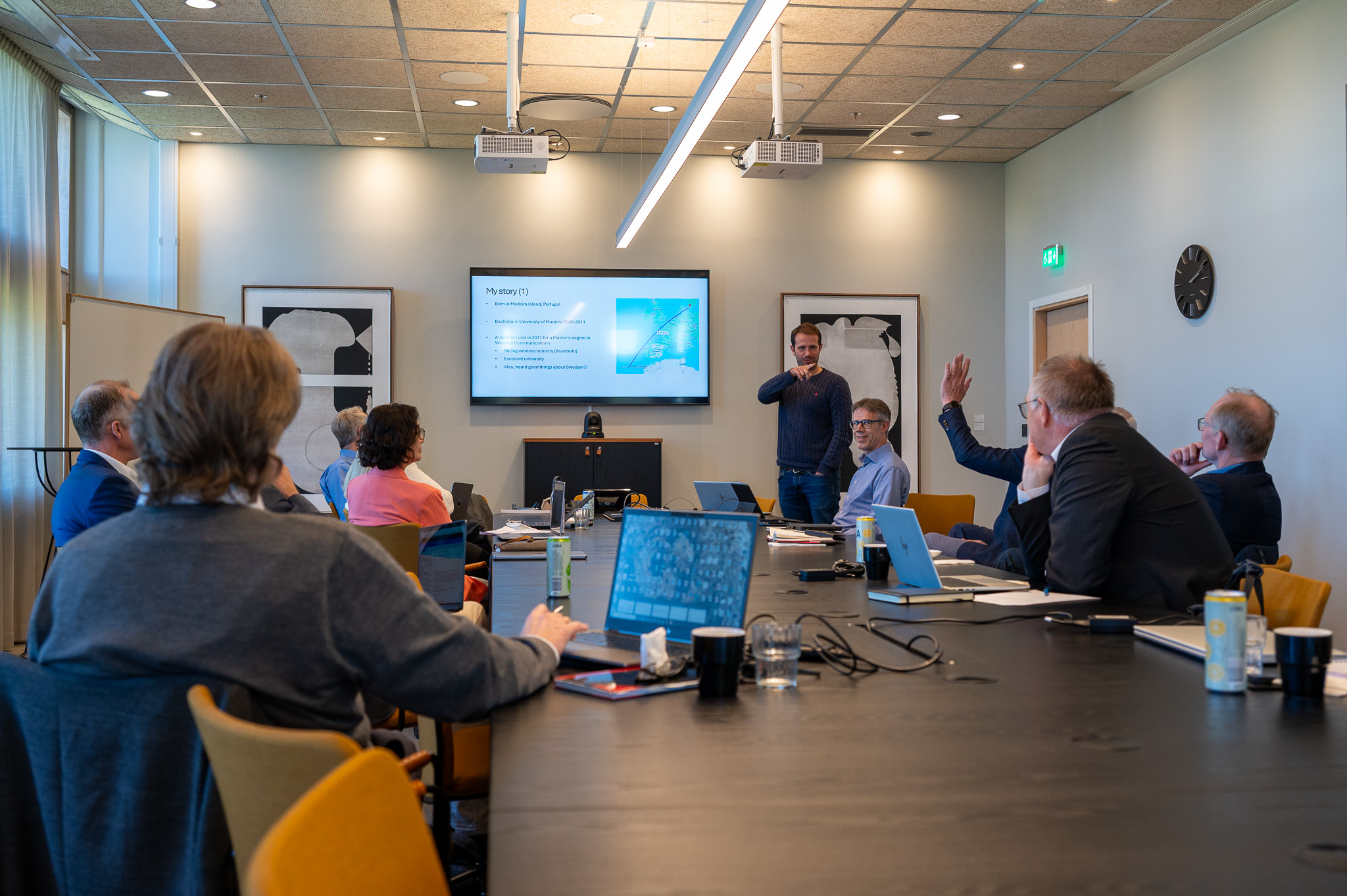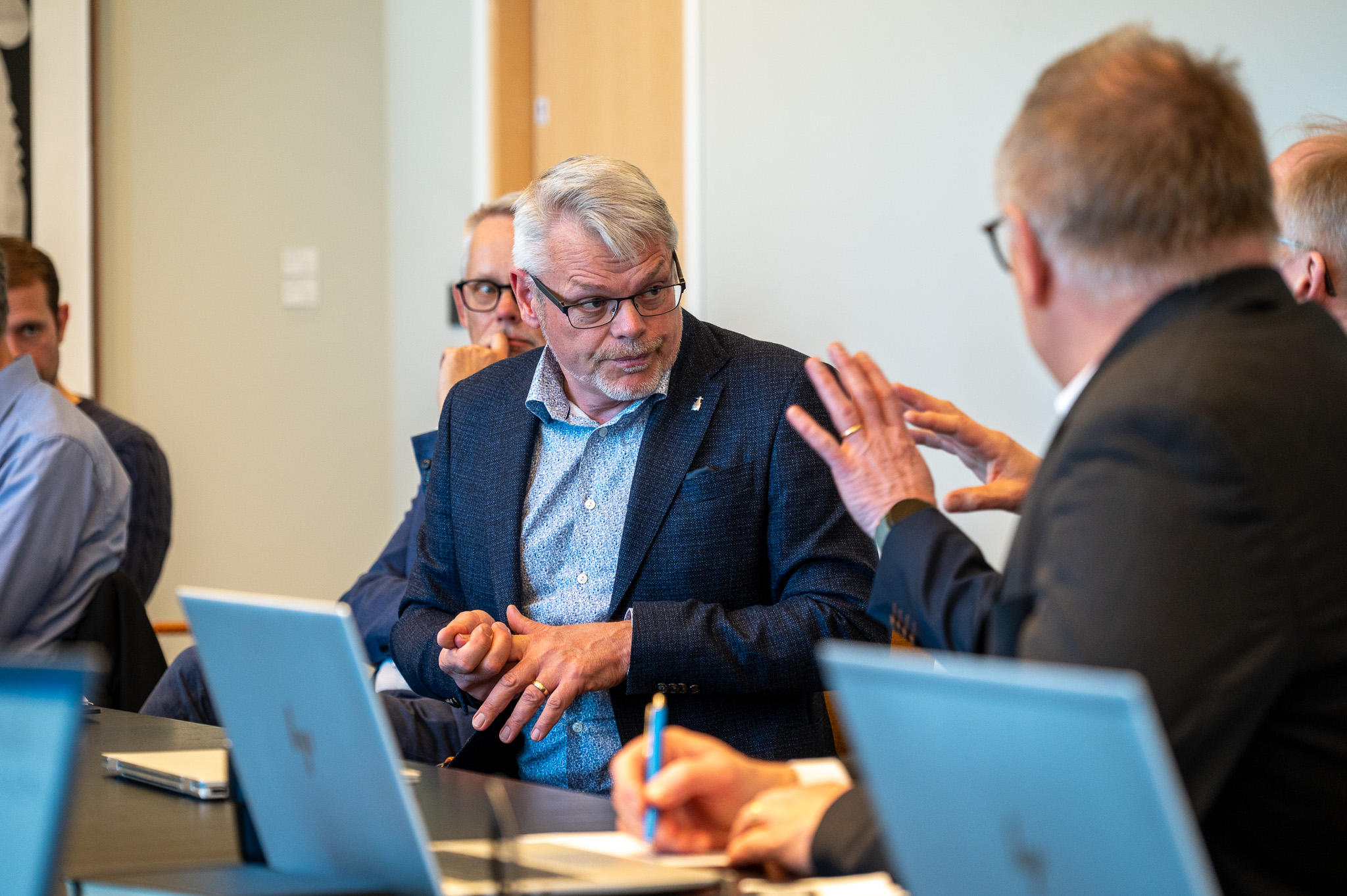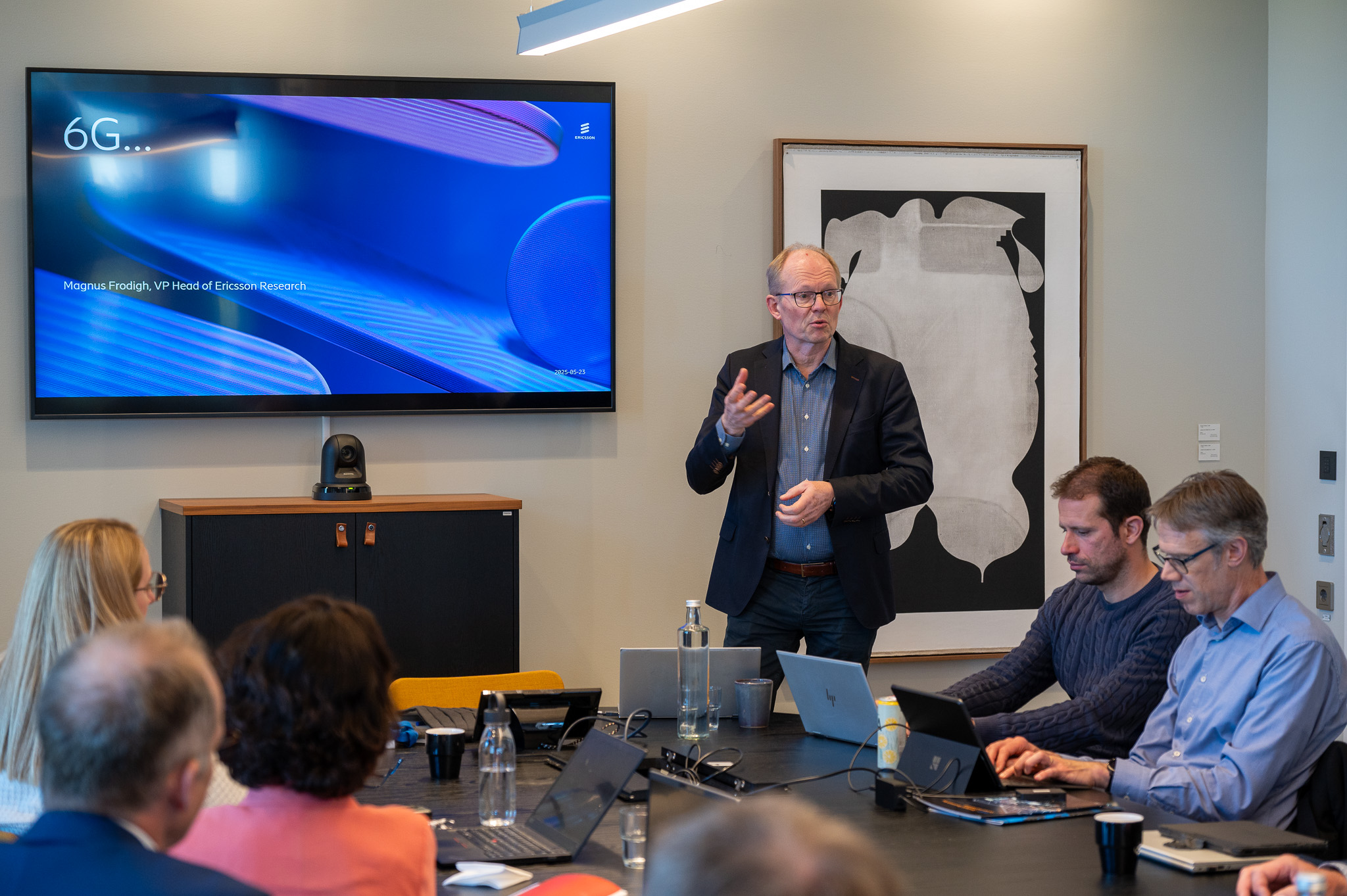
How can Swedish industry benefit even more from academic research – and how can academia meet the industry’s future talent needs? These were the overarching questions when representatives from both academia and industry gathered for the ELLIIT Industrial Advisory Board Day 2025 at Linköping University.
The Industrial Advisory Board Day serves as a forum for dialogue between ELLIIT and its industrial partners. This was the second time the event was held, bringing together leading figures from companies such as ABB, Ericsson, and Saab.
A strong and expanding program
The day began with a welcome by Per-Olof Brehmer, the new chair of the ELLIIT Steering Group. He was followed by Erik G. Larsson, director of ELLIIT, who provided an overview of the program’s development in recent years.
“Our research is intended to benefit both industry and society, and we view it very positively that the vast majority of our PhD students and postdocs go on to careers in Swedish industry,” said Erik G. Larsson.
He also highlighted the significant growth of ELLIIT since the previous Industrial Advisory Board Day in 2022. The number of funded PhD projects and Recruited Faculty positions has increased, and all eight funded research infrastructures are now operational. The focus periods have also become a vital part of ELLIIT’s activities.
Impact beyond academia
Fredrik Tufvesson, co-director, continued by presenting several so-called impact cases – concrete examples of how ELLIIT’s research has made a difference in industry.
“Our greatest impact comes from providing highly skilled researchers and engineers to the industry,” he said.
One clear example is the development of Massive MIMO, a key technology that moved from theoretical research to becoming a fundamental part of today’s global 5G standard. Technologies for 3D mapping, now used by companies such as Apple and Meta, also have their origins in ELLIIT projects.
João Vieira, a former ELLIIT PhD student, shared his journey from academic research to his current position at Ericsson Research, where he works on collaborative projects between Ericsson and the universities of Linköping and Lund.
Collaboration as an enabler
The day also included reflections from industry representatives. Petter Bedoire, Chief Technology Officer at Saab, discussed the challenges facing the industrial sector.
One major challenge, he noted, is that while there is much to be done in terms of development and research, the industry must simultaneously continue delivering its existing products and services. According to Bedoire, this tension is a key reason why partnerships with academia – such as with ELLIIT and the universities – are so valuable in enabling faster progress.

Petter Bedoire also emphasized the importance of effective communication between the parties, especially in a time of rapid technological development.
Magnus Frodigh, VP and Head of Ericsson Research, agreed and added the importance of 6G.
“It’s truly impressive to see the full scope of ELLIIT’s results. The program is a leader in 6G research. ELLIIT needs to continue pushing the research frontier now that the initial frameworks for 6G are being established. We look forward to continued collaboration as new areas opens up,” he said.

Industrial cooperation
Read more about ELLIIT’s industrial cooperation.
Organization
Read more about ELLIIT’s organization, including a full list of the Industrial Advisory Board members.
